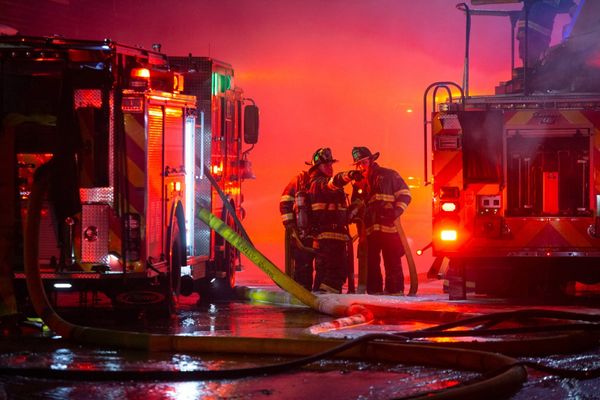
After more than a decade working as a psychiatrist in the public mental health system in Sydney, I recently resigned from my position along with more than 200 of my colleagues. I’ve known some of the healthcare professionals I work with and indeed, some of my patients, longer than I’ve known some of my closest friends. So it was not a decision I took lightly.
Psychiatrists in New South Wales are asking for a pay rise to plug the haemorrhage of senior doctors from the mental health system. More than a third of positions are vacant, which means the burden of extra work falls on those of us remaining. We do our best to provide cover but inevitably patients do not receive the care they need or deserve. Frustratingly frontline staff are often unfairly blamed for any shortcomings, but it is in fact our patients who suffer most.
As psychiatrists we care for some of the most vulnerable members of society. I work in community mental health looking after patients with conditions like schizophrenia, one of the most debilitating mental illnesses we treat. Many of them are plagued by hallucinations, such as voices commanding them to harm themselves, or distressing delusions – that they are being persecuted for example. Just the other day I admitted a young woman to hospital who believed she was being tormented by spirits and wanted to end her life as a result.
These patients require assertive follow-up, close monitoring and considerable support. Vacant psychiatrist positions mean there is no one to review, medicate and formulate treatment plans for them, exposing them to significant risk. It is unfathomable that the government has let things get to this point.
Last weekend, I was on call at the hospital where I work. I received calls all day and throughout the night from the mental health nurses and junior psychiatrists in the emergency department, wanting to discuss seriously ill patients. One in the grip of a psychotic episode, another severely depressed and suicidal, others dealing with the consequences of domestic violence, alcohol dependence and drug use. With the number of psychiatrists dwindling and the absence of senior psychiatrists to provide guidance, the safety of patients experiencing mental health crises like these is in jeopardy.
Some may wonder if more psychiatrists leaving en masse is the solution to this crisis. The intention is to make the government take this seriously before it is too late. We should strive to create a society that priorities the health and wellbeing of its citizens. Funding the healthcare system adequately should be a no-brainer, but politicians’ words rarely translate into action. Drastic measures are required to force them to act.
For years psychiatrists have been propping up this under-resourced system but we have now reached breaking point. You would struggle to find a psychiatrist working in the public mental health system who is not burnt out. Our job is challenging, but rewarding when you can keep your head above water. Currently, we are drowning.
There comes a tipping point when the remaining few can no longer manage. Without a critical mass of psychiatrists the system collapses. We are at that point now, which is why the profession is taking a stand. Increasing remuneration should attract more psychiatrists back into state public healthcare and stop this mass exodus.
Of course, it does not end there. The entire system needs a lifeline. Nurses and other healthcare professionals deserve fair pay to aid recruitment and retention. More inpatient beds are desperately needed for the most severely unwell. Therapy options are scarce and need proper funding. The list goes on, but the government has the power to change things for the better.
Personally I will struggle to return to public healthcare, at least for the foreseeable future. Working in the broken system has taken a toll on my own wellbeing which I can no longer ignore. Although I am left feeling guilty for moving on, I have decided to practise what I preach every day and prioritise my mental health.
As I move to different pastures, I am sad to be leaving friends, colleagues and my patients behind. But I sincerely hope this painful episode will be a wake-up call for the government to fund the healthcare system adequately – for the sake of our patients, who deserve better.
• Details have been changed to protect the anonymity of patients
• In Australia, the crisis support service Lifeline is 13 11 14. In the US, the National Suicide Prevention Lifeline is 1-800-273-8255. In the UK, Samaritans can be contacted on 116 123. Other international suicide helplines can be found at befrienders.org
• Dr Kamran Ahmed is a psychiatrist, film-maker and entrepreneur writing on mental health, culture, politics and healthcare







